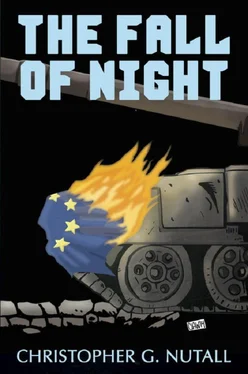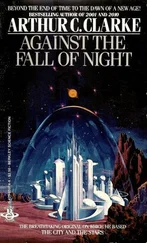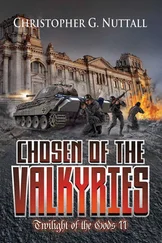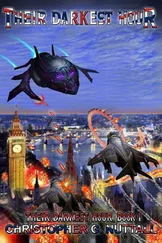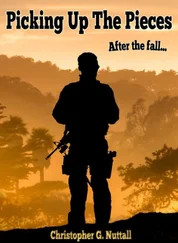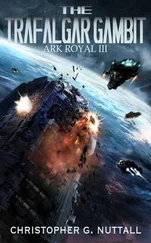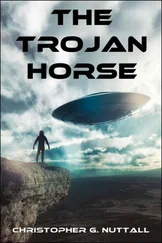He held up a hand at one point. “Colonel Aliyev ordered his men to serve as light infantry?”
“Yes, General,” Anna said. “They did good work, too, in rooting out a British nest. They’re going to slow us up for at least a week, sir; they’re using the German tactic of jeeps and antitank rockets, or sometimes a machine gun. The scouts have pressed forward as far as Hastings to Tunbridge Wells; intelligence believes that we will begin to encounter major enemy civilian populations once we reach Brighton.”
Shalenko scowled. “Have we found any civilians here?”
“A handful, mainly a handful of looters,” Anna said. “We interrogated them all; they were ordered to head for refugee camps in the south-west, decided that there would be good pickings in the abandoned houses, and ran into us instead.”
“Good,” Shalenko said. “And the enemy military?”
“The Air Force believes that it has wiped out the RAF, although seeing that they have said that several times before, I think we should be careful about accepting it on trust,” Anna said. “The enemy has been digging in to small towns surrounding London, with a large force gathered up near Dorking, and smaller units gathering in London’s suburbs.”
Shalenko asked for a map and examined it. “Interesting,” he said finally. “I wonder why Dorking; what do they have there?”
“Intelligence believes that they are massing there for a counter-attack,” Anna said. “Our standard tactic is to surround cities before going into one and attacking London directly would be a nightmare; they may even be hoping that we would do so, which would allow their remaining forces to hit our flanks and pocket us. There are smaller British formations near Portsmouth, including Royal Marines; they may intend to keep building defences and inviting us to attack them.”
“Then we have to move on Dorking,” Shalenko said. It wasn’t a hard choice at all; modern warfare was all about destroying the enemy’s army… particularly if you didn’t care about the civilians caught up in the meat-grinder. Inform the planners that I want operational plans within the hour, and we move as soon as possible; the air force can have a slight rest and prepare itself for the final battle. Once the British Army is destroyed, London is finished.”
Stepanov appeared silently behind him; Shalenko sensed his presence and turned to face him. “Well?”
“He broke, finally,” Stepanov informed him. A bloody carcass was being dragged out of the tent; Harris would be lucky to survive for another hour. “As far as he knew, all mobile units and ones that could get out of our clutches were to retire on Dorking and the other places along the London Defence Line; past that, he has no idea what the British command is planning.”
“Tactical nukes, perhaps,” Shalenko said. It was a wild card; they didn’t know if the British military government had the nukes, or if they would use them in their own country. The President had warned the British that if nukes were used, they would start destroying British cities; Shalenko knew that the President wasn't bluffing. Did the British know that? Did they have any nukes to use? “See to it that he gets whatever medical care he needs; his men can be secured for transport back to the continent.”
He paused. “And in a few days,” he said, “we move on Dorking.”
“And then we win,” Anna said.
* * *
Two days passed as both sides worked desperately to prepare for the final battle. Russian forces probed north-west into England, slowly clearing out traps and dug-in infantry and TA soldiers, fighting to the last to preserve their country. In some places, morale collapsed completely and soldiers deserted, heading out back to their homes, or deserting to the enemy; they were rapidly secured, interrogated, and dumped in massive prison compounds to await their fate at a later date. In other places, furious fighting broke out as British soldiers fought tooth and nail to hold a town or village, but the Russians had vast superiority in weapons and total ruthlessness; resistance was swiftly crushed by overwhelming force.
Russian soldiers brushed up against the main defence line, exchanged shots, and fell back, expanding their area of control around London. Both sides knew that it was only a matter of time before the fighting flared up again in earnest, and prepared hard for that day. As the air lanes over London were closed by Russian aircraft, the citizens began to panic; some of them demanding peace at any price. The overworked police, volunteers all to a man or woman, did what they could to keep the lid on; they knew what would happen if the Russians won.
The remainder of the country waited nervously to see who would win the coming battle. Planners on both sides calculated and recalculated the odds, comparing details like air control to precise knowledge of the terrain; everyone knew what happened when the armies finally met in open battle would be decisive. The army that the British had raised would be the last; if it lost, the war would be all over, bar the shouting. All over the country, some civilians remained where they were, watching events on CNN and a dozen other American media programs, cursing the limited details. The White House had invoked PATRIOT III, causing a storm of controversy; the legal wrangling over the question of how much of the British preparations they could show wouldn’t end until after the battle was decided, one way or the other. Wearing British uniforms that fooled no one, a handful of Americans joined the British armed forces; their planes, technically non-combatants, would be a vital part of the RAF’s last throw of the dice.
All around the country, people waited; rumours spread rapidly. Prince Harry had returned to his unit in its hour of need, some said; others remembered how the Prince had never been permitted to serve in Iraq and dismissed the rumour, adding others. The Royal Family had fled, rats leaving a sinking ship; the remains of Britain’s noble families had joined them. The Russians were going to slaughter all the Muslims; the Russians were going to slaughter all the Jews; the Russians were going to rape every man, woman and child they encountered…
Escape seemed an impossible dream; there was nothing left to do, but wait…
And listen to rumours.
* * *
Major-General Charles Langford saluted as the group of soldiers paraded in front of them, before they marched off to the front line. They were young, many of them barely out of their teens; a handful in the strange grey-area of age where technically they should never have been recruited into the Army, but the Army had been so desperate for new recruits that they had been accepted… and for many of them it had been the making of them. They wore their uniforms with pride, some of them wearing unit insignia that had been lost long ago, under one government or another. The politicians hadn’t understood; when they amalgamated regiments such as the Highlanders, or the Black Watch, they were killing something important. Men might think of fighting for their country, but instead… the factor that would keep them in the front lines was loyalty to their fellows, or a reluctance to run in front of them. They were the finest that Britain could produce…
He had lied to them, of course, and he had hated himself for it. He had told them that they had a chance, and that many of them would survive the coming battle; the latter, at least, was a lie. The SAS and other intelligence agencies had worked hard to slip operatives into Occupied Europe, where they had reported on the registrations, the employment, the rations, the brutal crushing of protests, peaceful or otherwise… there was very little hope for them all. The warning had been simple; if you are a soldier, or a policeman… you have to hide and remain hidden, or you vanished. The Americans had sent images of the camps in Occupied Europe, and the work camps in the depths of Russia; that was the fate that awaited them all if they lost and were captured. There was no hope…
Читать дальше
